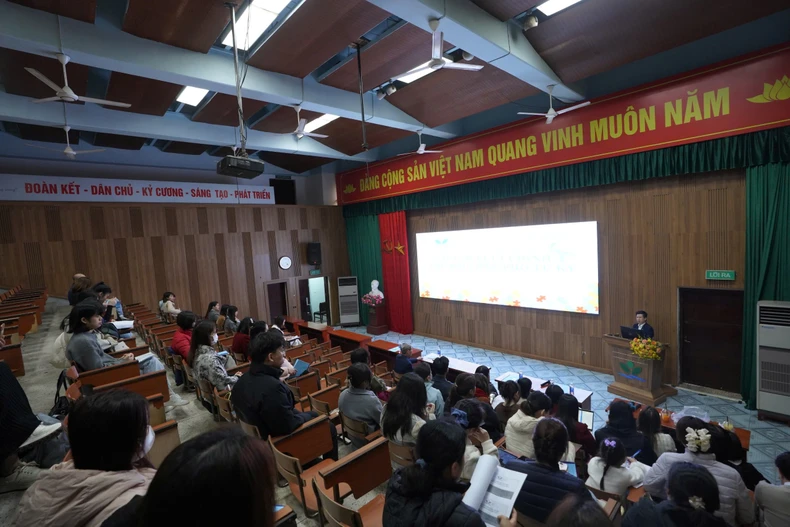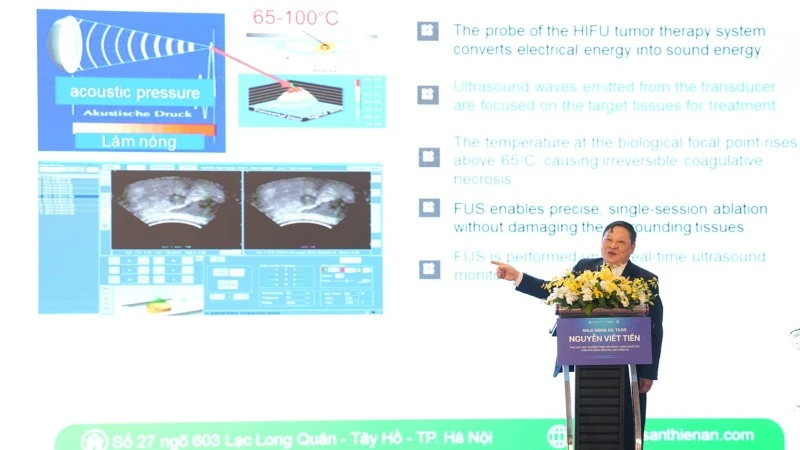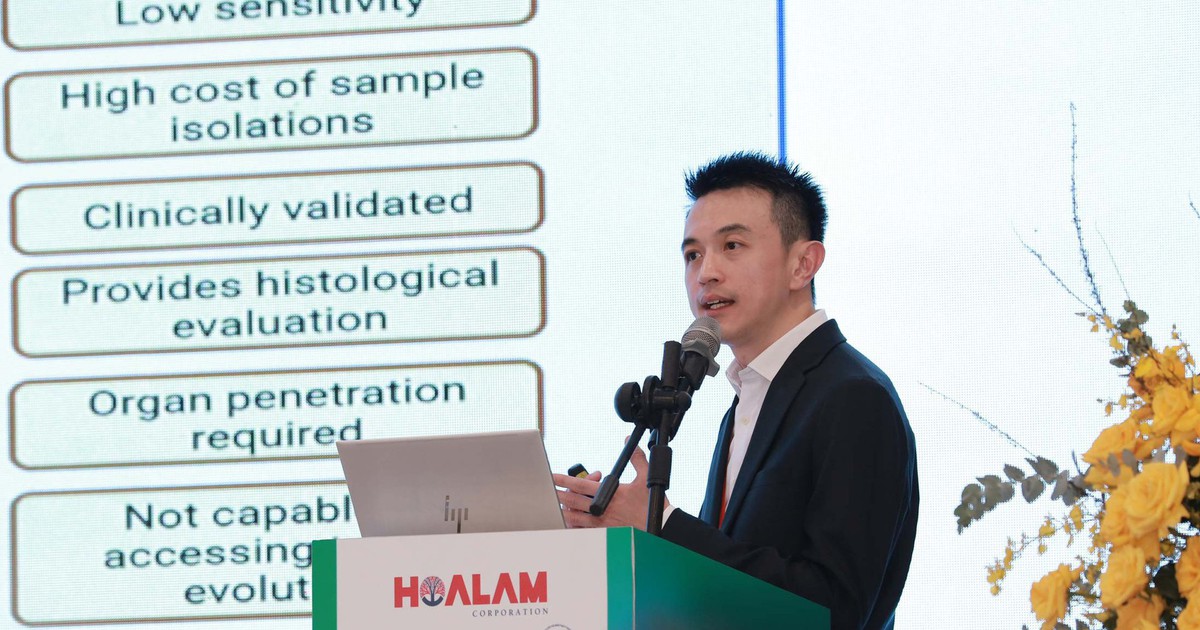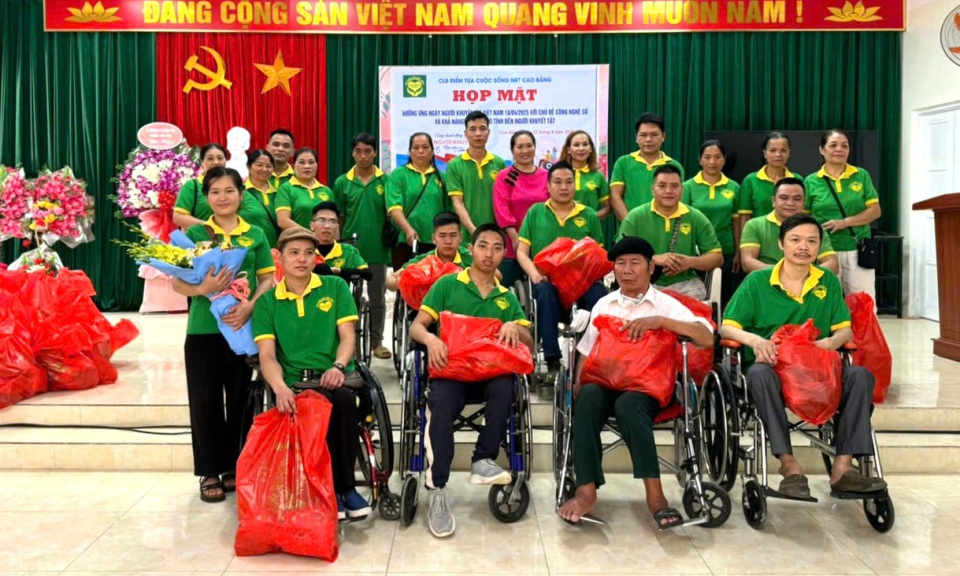Skipping intervention will slow down children's development.
A 68-month-old patient (in Ba Vi, Hanoi) was born healthy. At 27 months, the child could not say single words, sometimes spoke nonsense, did not point with his index finger, and rarely looked at others. The child often played alone and rarely turned around when called. In addition, the child had additional behavioral signs such as spinning around and being afraid of loud noises, especially hair dryers.
Master, resident physician Nguyen Minh Quyet said that at the Department of Psychiatry, Central Children's Hospital, the child was diagnosed with autism. The child was sent by his parents to attend intervention classes at a local center, studying by the hour. However, the child did not return for follow-up examinations as scheduled.
"When the child was 49 months old, the parents took him back for a check-up. At this time, the child could only say about 10 single words, could not speak clearly, spoke nonsense, could not point to body parts, could not point to relatives...
After a period of active intervention using both medication and educational intervention, the family did not take the child for follow-up check-ups as scheduled. This slowed the child's development," Dr. Quyet said.
At the Department of Psychiatry, Central Children's Hospital, when intervening with young children, doctors aim to help children have the ability to communicate, meaning that children must be attentive, know how to play interactively, and know how to use language to be considered complete communication.
However, many parents only want their children to speak and when their children can speak, the family thinks that they have reached the goal of intervention. But in reality, speaking is only one factor, more complete is to help children use language appropriately in daily communication. In addition, children also need facial expressions, gestures, body language,... to help children integrate.
 |
Expertise sharing session with parents of autistic children at the National Children's Hospital. |
There are also many parents who see that their child has made some progress in behavior, thinking that their child is cured, so they do not take them for a follow-up examination to assess their child's progress. However, according to experts, autistic children are dynamic (changes in symptoms, behavior... at each point in time), so taking their children for regular check-ups will help them know whether their child is receiving good intervention or not, whether the intervention method is used correctly or not, and whether the way parents support their children is appropriate or not.
"In mild children, teaching at a normal level can make good progress. But in severe children, if we only apply the same method, the child will be very slow. For example, severe children need at least 25-40 hours of intervention per week from both teachers and parents, and must have at least two years of continuous, high-intensity, active intervention for the child to make significant progress.
Obviously, each child needs different intervention time and intensity. That is to explain to parents that children with accompanying problems such as attention deficit hyperactivity disorder, sleep disorders, behavioral disorders, etc. will find it difficult to progress as expected if they do not intervene properly and comprehensively," said Dr. Quyet.
What should parents do to intervene for autistic children at home?
Master, resident physician Nguyen Minh Quyet emphasized that when determining their child's developmental disorder, parents need to understand their child, be close to and love their child. Parents need to determine their psychology, their child is what makes them happy to spend time with their child. At the same time, they must know that their child will have weaknesses and strengths so that parents can find ways to promote their strengths and overcome their weaknesses .
Parents need to support their children’s routines. This will provide structure and security for the child; it can help the child develop strengths. Parents should always keep the child informed about the schedule, changes, and provide visual support.
The most important thing to accompany your children is that parents must equip themselves with knowledge. Parents should proactively equip themselves with correct, scientific and reliable knowledge. Do not listen to rumors or inaccurate advertisements.
"Information from experts at specialized hospitals, the Department of Special Education, the Department of Clinical Psychology, etc., with proven reputation and qualifications, will help parents have the right knowledge and practice to help their children progress day by day," Dr. Quyet emphasized.
It is also important that parents take their children for regular check-ups and follow-up appointments. This allows for assessment of their development, associated problems, advice, and appropriate medication adjustments .
In addition, parents should spend 10-15 minutes a day for themselves. Parents can practice stretching, abdominal breathing, listen to music, talk to loved ones, etc. to help parents restore energy and continue on a wonderful journey.
For families far from intervention centers, doctors have ways to guide children to intervene at home and go to medical facilities for intervention in batches. For places with many intervention facilities, parents need to learn carefully about the center to find a reputable place.
"Parents should join mainstream communities to share, support and learn from experts and parents to help children and parents on their journey with their children," Dr. Quyet shared.
According to this expert, the first children diagnosed with autism in Vietnam were over 20 years old. Therefore, career guidance for them is very important. He hopes that in the future, there will be businesses that care about social security, creating jobs for autistic children; the whole society working together will help children integrate and become useful people to society.
Source: https://nhandan.vn/nhung-sai-lam-cua-cha-me-khien-con-tu-ky-cham-tien-bo-post868650.html



![[Photo] Closing of the 11th Conference of the 13th Central Committee of the Communist Party of Vietnam](https://vstatic.vietnam.vn/vietnam/resource/IMAGE/2025/4/12/114b57fe6e9b4814a5ddfacf6dfe5b7f)

![[Photo] Overcoming all difficulties, speeding up construction progress of Hoa Binh Hydropower Plant Expansion Project](https://vstatic.vietnam.vn/vietnam/resource/IMAGE/2025/4/12/bff04b551e98484c84d74c8faa3526e0)



![[Video] First time in Vietnam: Successful implantation of 3rd generation partial artificial heart](https://vstatic.vietnam.vn/vietnam/resource/IMAGE/2025/4/12/8817412224094c68ba2c744b7bd5cfea)







![[Photo] Ba Duong Noi village kite festival receives national intangible cultural heritage](https://vstatic.vietnam.vn/vietnam/resource/IMAGE/2025/4/12/d25e0dec90c840e58a24e53f252efbb3)






































































Comment (0)